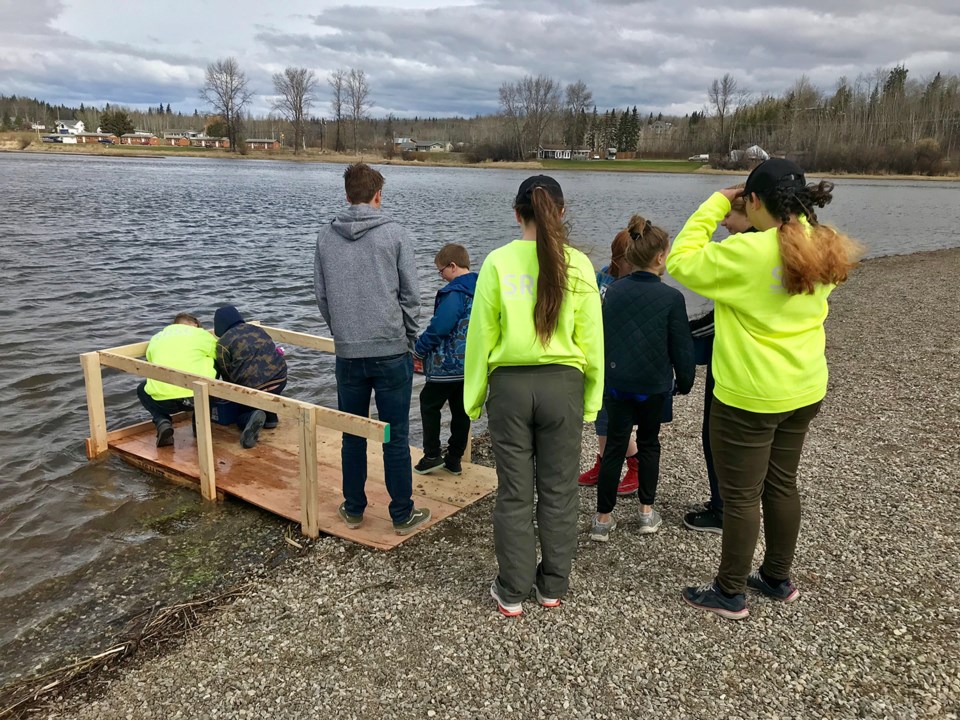Work is underway on over 60 provincially-funded ecosystem restoration projects throughout B.C. this spring, including a few in Prince George's vicinity and across the north.
The projects are part of the Conservation Economic Stimulus Initiative (CESI), and are being completed through partnerships with local Indigenous, environmental, university and stewardship groups.
In total, more than $1.75 million is earmarked for initiatives in the Prince George and northern regions.
They are as follows (in order of largest funds allocated):
Lower Otter Creek Wetland Restoration = $700,000
- Lead = Jackie Caldwell, Taku River Tlingit First Nation
- This project seeks to restore natural wetland habitat along the lower section of Otter Creek will reduce sediment from upstream mining activities from entering Surprise Lake. These restoration efforts will improve water quality, encouraging local grayling populations to utilize Otter Creek habitat once again and providing water and habitat retention.
Saik'uz Restoration Plan = $500,000
- Lead = Mark Steynen, Society of Ecosystem Restoration in Northern BC
- Saik'uz will support two short-term restoration projects including current road rehabilitation in the Crystal Lake area and, large-scale functional habitat restoration tools to enhance moose populations in north-central B.C. Saik'uz and the Ministry of Forests, Lands, Natural Resource Operations and Rural Development will also co-develop a Restoration Plan to identify other ecosystem restoration opportunities within Saik'uz Traditional Territory. The restoration plan will support multiple objectives and values related to climate, habitat, forest productivity, and ecosystem restoration.
Nechako White Sturgeon Restoration Action = $250,000
- Lead = Steve McAdam, Ministry of Environment and Climate Change Strategy
- This project will contribute to the recovery of the Nechako white sturgeon by supporting work in three areas: spawning habitat restoration, juvenile mortality and by evaluating juvenile winter habitat use. All three project areas are high priorities recovery activities. These projects will both advance our understanding of identified threats and continue our progress on habitat mitigation.
Large-scale functional north-central B.C. moose habitat restoration tools = $144,000
- Lead = Mark Steynen, Society of Ecosystem Restoration in Northern BC
- The organization has proposed a habitat restoration project in response to declining moose populations in the Omineca. The project will use a combination of treatments to modify the structure of older plantations to facilitate the recruitment of forage and habitat structure important to moose.
Meziadin Watershed – Assessing Climate Resilience = $110,000
- Lead = Tara Marsden, Gitanyow Hereditary Chiefs
- This project will involve monitoring and assessing changes to water quality and temperature in Meziadin Lake and will empower Gitanyow to better steward the lands and waters that have been the subject of legal action, negotiation, and conflict for more than 100 years. The project will support employment, reconciliation, stewardship and climate resilience - including the establishment of an Indigenous protected area as well as tri-lateral negotiations towards an incremental treaty approach between Gitanyow, B.C. and Canada.
Whitebark Pine Data collection, analysis and conservation management = $50,000
- Lead = Kendra Bennett, Ministry of Forests, Lands, Natural Resource Operations and Rural Development
- This project aims to collect and analyze ecological data on the ground from newly observed whitebark pine areas in Tweedsmuir North Provincial Park (Bulkley Valley) to support whitebark pine ecosystem description and classification. Collected vegetation material will be used to increase the number of pine rust-resistant trees across the province over time
"Healthy watersheds and ecosystems are critically important for species conservation and climate adaptation, reducing the impacts and risks caused by floods, droughts and wildfires," says George Heyman, B.C.'s Minister of Environment and Climate Change Strategy, in a news release today (March 22), in which 350 jobs are expected to be created.
"By working with partners across the province, we are restoring priority habitat to support threatened species. These meaningful projects also highlight the importance of environmental stewardship and what can be achieved when we work together."
All listed projects are scheduled to be completed by December 2021, and are also a program of B.C.'s $10-billion COVID-19 response plan.
- with files from Chelsea Powrie, Castanet





